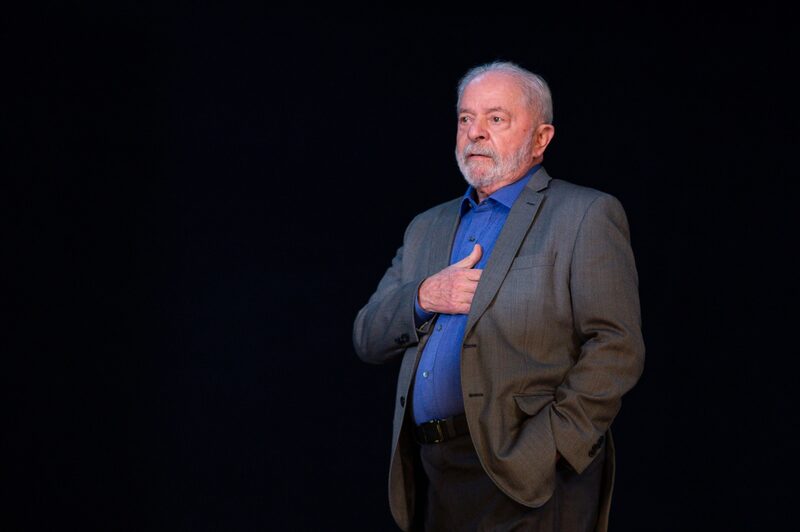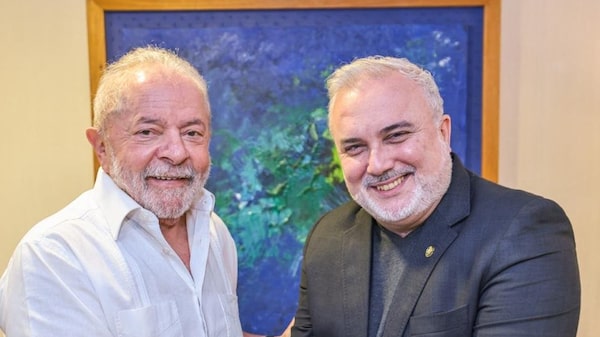Bloomberg Línea — After a long campaign, a first round of voting and an electoral runoff, Luiz Inácio Lula da Silva is serving his third period as Brazil’s president as of January 1, 2023.
Lula’s domestic agenda shares many issues with those of some of his peers in the region, such as Gustavo Petro in Colombia, Gabriel Boric in Chile, and even Andrés Manuel López Obrador (AMLO) in Mexico. Energy transition, environmental protection and economic integration are ideas voiced by the presidents in their speeches.
However, experts and analysts pointed out to Bloomberg Línea that a regional integration with Lula’s arrival to power in Brazil is not an easy goal to achieve, especially because of the internal challenges that he and the other presidents have in their countries.
“It is a fact that leftist governments are in office in Latin America, but not all the lefts are the same. At this moment it is not possible to speak of a (single) leftist agenda, given that we have democratic lefts represented in Chile, Brazil and Colombia, and we have authoritarian lefts, represented in Nicaragua, Cuba and Venezuela, and that is an obstacle for political and economic integration,” said Marcos Peckell, a political analyst, academic and columnist.
Political and leadership challenges
The first evidence that that Lula da Silva has major domestic political challenges is embodied by his elections results, after a campaign marred by polarization and fake news. Although the new president stood out in the first round with 48.2% of the vote against Jair Bolsonaro’s 43.2%, in the runoff he won by a tight margin: 50.9% of the vote against 49.1%.
“It is too early to say, but Lula’s main priority won’t be foreign policy, it is going to be homeland policy, due to current polarization and the difficulties of governance, since he does not have a majority in both chambers of Congress,” Mauricio Jaramillo, a professor at the Universidad del Rosario, in Bogotá, told Bloomberg Línea.
According to Jaramillo, some of Lula’s main challenges are overcoming the polarization aroused at the end of Bolsonaro’s term, and reactivating the economy after the Covid-19 pandemic. Besides, Jaramillo said, although there are regional expectations on Lula’s leadership for regional initiatives, “the left is very divided and that makes it less possible to have leadership like this. It has happened with Petro, Boric and (Argentinian president Alberto) Fernandez, all of them have had to focus on internal affairs.”
Will Unasur revive?
Some multilateral organizations have marked the political and economic agendas of the last decades in Latin America. Initiatives such as the Community of Latin American and Caribbean States (Celac), the Union of South American Nations (Unasur), the Organization of American States (OAS), the Andean Community of Nations (CAN) and the Pacific Alliance (PA) are some examples.
After Lula’s electoral win, former Latin American presidents and former foreign ministers, former ministers, current legislators, and heads of international organizations, among other officials, sent a letter -- in November -- to 12 presidents of the region, including then president-elect Lula da Silva, emphasizing that “integration is more necessary today than ever.” They also called for the revival of Unasur (Lula participated as founding president), pointing out that “urgent intervention is required from multilateral organizations, which today are unfortunately weakened and often impotent.”
According to Peckell, the attempts to “take Unasur out of the cemetery” could take place, but it would have to be under very different conditions for which it was created by Lula and Hugo Chávez more than 10 years ago.
In turn, Jaramillo says that the idea of re-launching this organization is gaining traction, but there remains a question as to whether Lula “has enough political capital” to lead these efforts.
Economic integration is the key factor
With Petro and Boric taking office in Colombia and Chile, there were renewed calls for Latin America to work as a bloc on some fronts, like the economy or the environment. There’s even a new debate on an old proposal: a single currency for LatAm.
However, the analysts consulted by Bloomberg Línea point out that although there is a majority of leftist governments in the region, their agendas are not the same. In fact, there are marked differences on issues such as the market economy, the independence of central banks and the use of natural resources. Therefore, they say, a common economic agenda is out of the question.
Peckel says that LatAm’s economic situation is quite precarious, especially after the Covid-19 pandemic. Besides, he says, the economic conditions differ in the region and thus it’s not possible to speak of a single economy. “Take Brazil and Mexico, for instance: the first one has its main trading partner in China, the second in the United States,” he said.
Also, he adds that the countries of the region share little trade among them as compared to that between Brazil and Mexico with their main partners.
“And we have economies of economies. The lefts are not all the same; there is the Argentine case of an economic dysfunctionality that has been going on for decades, always making the same mistakes, with the country suffering from runaway inflation and devaluation,” he said.
Added to these issues is the energy transition, a factor of many asymmetries, as defined by Jaramillo. For the Universidad del Rosario professor, the pandemic and Russia’s war in Ukraine delayed the transition objectives and the region’s leaders now have different positions: the anti-extractivist left, as Petro and Boric define themselves, and the other left that believes in transition like AMLO in Mexico, but at a slow speed. “With an oil barrel price above $80 or $90, and with so many social difficulties, it will be very difficult to move forward,” he said.
LatAm’s agenda for the world
Although internal challenges are huge and tend to cloud the ability of leaders to take regional initiatives, experts see the possibility for the region to bring two key issues to the global agenda:
- Energy transition: a subject already voiced in the international arena, such as Colombian president Gustavo Petro did at COP26
- Migration: despite the situation in Haiti and Venezuela, migration had been put on the back burner because of the war in Ukraine. However, Latin America seeks a stronger commitment from the international community to assist the countries receiving and sending migrants, as is the case of Mexico and Colombia.
The arrival of Lula da Silva in office does not translate into regional leadership at once.
“Brazil is not influential simply because of its size; Brazil is influential mainly when it is successful. During periods of stagnation or instability, Brazil loses prominence in Latin American diplomacy. So, the big question is whether Lula can bring back his magic of the 2000s to the 2020s. (...) I have my doubts. If Brazil continues in crisis, it will not be a leader in Latin America”, Brian Winter, vice-president of the Americas Society/Council of the Americas, told La Nación, at the end of 2022.


